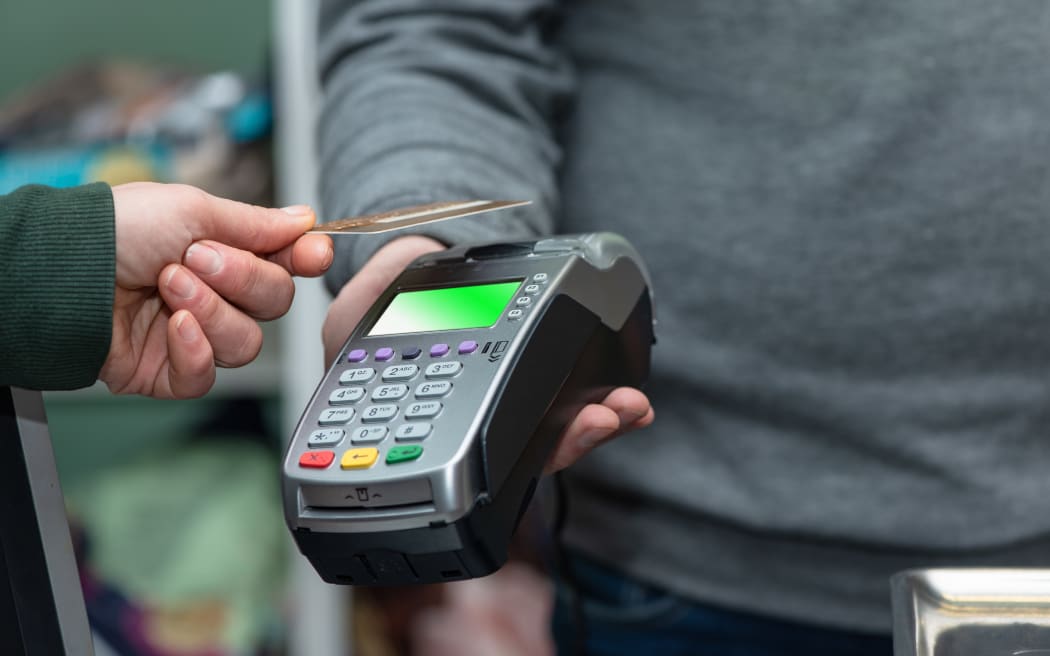Navigation for News Categories
Photo: 123rf
Some businesses are failing to pass on lower paywave and other card fees to consumers, despite a law change capping some rates.
The Retail Payment System legislation, which went into effect in November, limits the interchange fees between banks and card companies, with savings to be passed on to consumers.
However, consumers were still being charged 2 or 3 percent on purchases paid for using paywave in many shops, despite a cap of 0.2 percent on interchange fees, or a 5 cent flat fee.
The Commerce Commission said it had received four complaints about excessive surcharges on transactions, since the legislation was put into effect in mid-November.
In one recent case, a merchant applied a 54 cent paywave surcharge or 2.5 percent on a $21.50 purchase, which should have cost 4.3 cents at most based on interchange fees. However, the commission said the merchant fee for paywave on debit transactions should have been less that 2.5 percent.
Contact debit payments continued to be exempt from fees, while interchange fees on credit card payments were now capped at 0.8 percent of a transaction value, and online transactions using a debit card were capped at 0.6 percent.
“We would expect that those cuts should have been noticed and we are certainly expecting that they will be passed on so that merchants who are surcharging for the use of Visa and MasterCard should be surcharging less than they were before,” commission chairman John Small said.
He said the commission was talking to payment providers about their communications with businesses about the drop in prices.
“We are in the middle of a campaign that is trying to raise awareness of that with merchants and also to gather information from merchants about what they’re doing,” he said.
Retail NZ chief executive Greg Harford said some merchants may still be unaware of the changes.
“I mean, most retailers are not applying a surcharge. It’s more common in hospitality, ticketing and tourism,” Harford said.
“But it’s certainly important if you are putting a surcharge on your customer transaction, you need to make it really clear that those surcharges are covering the cost that you’re incurring and no more than that.”
Small said there was no law preventing merchants from applying a surcharge to cover transaction fees, but the commission expected them to be reasonable.
“We do have powers under the law to bring in a rule that says that any surcharging has to be in line with costs.
“We haven’t done that yet, because we’re still gathering information. But if there’s a continuation of surcharging at a level that’s well above cost, then that is that is certainly a strong option.”
Small said consumers should let the commission know of excessive surcharges.
“I think it will take a couple of months for us to figure out exactly what the pattern is and also to try and persuade merchants through other means such as for trade associations, and our own campaign.
“But if necessary we would certainly move swiftly after that.”
Harford said the commission also needed to see whether banks were passing on the savings on the interchange fees.
“There is a question about whether banks have adjusted the fees to take account of the new regulatory framework adequately,” he said.
“Regulators need to look pretty closely at exactly what’s happening.”
The Bankers Association said banks take regulatory compliance very seriously.
“Banks also operate in a competitive market and work hard to attract and retain customers,” chief executive Roger Beaumont said.
“We’d encourage merchants concerned about their fees to talk to their bank.”
Commercial credit cards were exempt from the regulation, with some attracting interchange fees as high as 2.25 percent.













